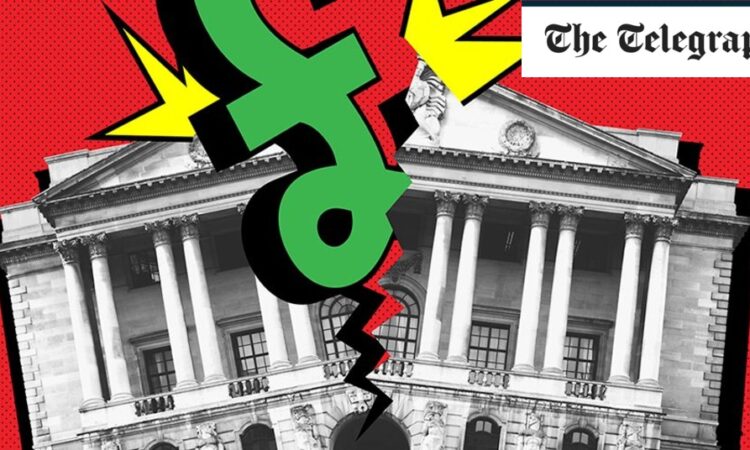
The Bank of England has called on ministers to decide whether a central bank digital currency should be “programmable”, ultimately giving the issuer control over how it is spent by the recipient.
Tom Mutton, a director at the Bank of England, said during a conference on Monday that programming could become a key feature of any future central bank digital currency, in which the money would be programmed to be released only when something happened.
He said: “You could introduce programmability – what happens if one of the participants in a transaction puts a restriction on [future use of the money]?
“There could be some socially beneficial outcomes from that, preventing activity which is seen to be socially harmful in some way. But at the same time it could be a restriction on people’s freedoms.”
He warned that the Government would be required to intervene and make the final decision.
Mr Mutton said: “That is a really delicate debate that needs to be had. It is not something we can settle ourselves, that is for the Government to lead on.”
A digital currency could make payments faster, cheaper and safer, but also opens up new technological possibilities, including programming: effectively allowing a party in a transaction, such as the state or an employer, to control how the money is spent by the recipient.
One potential use could be control over benefits payments, said Sandra Ro, chief executive of the Global Blockchain Business Council.
She compared a programmed digital currency to the US system of paying benefits in vouchers, as it could have a similar goal of restricting the recipient to buying only essentials such as food with the money.
Earlier this month Sir Jon Cunliffe, a deputy Governor at the Bank, said digital currencies could be programmed for commercial or social purposes, even down to the way children spend pocket money.
He told Sky News: “You could think of smart contracts in which the money would be programmed to be released only if something happened.
“You could think of giving your children pocket money, but programming the money so that it couldn’t be used for sweets. There is a whole range of things that money could do, programmable money, which we cannot do with the current technology.”
A Treasury spokesman said: “Programmability is a potential feature of a Central Bank Digital Currency (CBDC). The Taskforce is coordinating the exploration of a potential CBDC and no decisions have been taken on whether to introduce a CBDC in the UK or its design.”






